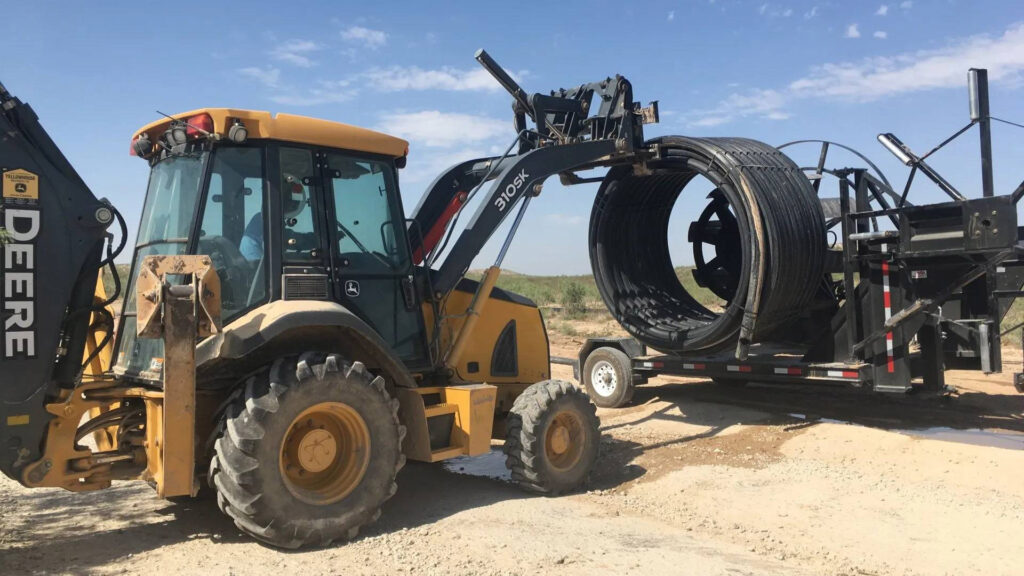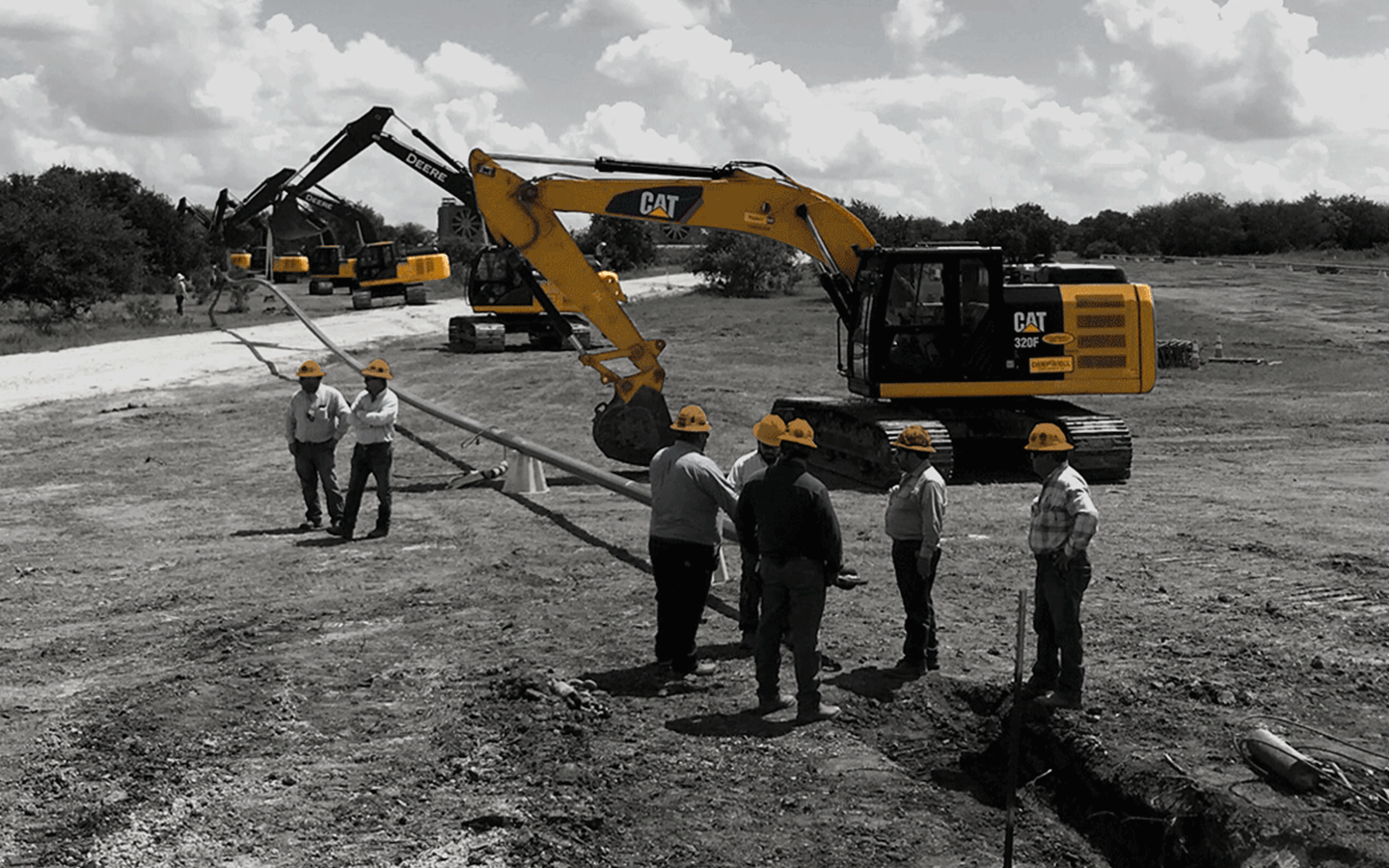Superior Oilfield Rentals: budget benefits you should know
Wiki Article
A Comprehensive Overview to the Different Sorts Of Oil Field Equipment and Pipeline Equipment Available
The oil and gas market depends heavily on specific devices for efficient extraction and transport. Different sorts of equipment, from piercing rigs to tank, play important functions in this complex procedure. Each tool serves distinctive features that add to overall functional success. Recognizing these elements is important for anyone associated with the field. As the industry advances, so too do the modern technologies that support it. What innovations are on the horizon?
Drilling Rigs: The Backbone of Oil Expedition
Drilling rigs act as the necessary equipment in the domain of oil exploration, enabling firms to gain access to hydrocarbon books buried deep underneath the Planet's surface area. These rigs are available in numerous types, consisting of land rigs, offshore rigs, and mobile units, each created to run in particular atmospheres. Geared up with innovative innovation, piercing rigs can permeate geological developments with precision, ensuring effective source extraction. The structural honesty and operational capabilities of these rigs are essential, as they need to withstand extreme conditions and significant pressures. Moreover, the option of a boring rig impacts the total project expense and timeline, making it an essential consideration for oil companies looking for to optimize their exploration initiatives and make best use of efficiency in their operations.Pumps: Essential for Fluid Movement
In the oil extraction procedure, the function of pumps is considerable, promoting the motion of liquids throughout different stages of manufacturing. Pumps are vital for carrying crude oil, water, and various other fluids from below ground storage tanks to the surface area and afterwards with pipelines to refineries. They are available in different types, including centrifugal, positive variation, and completely submersible pumps, each offering specific objectives based upon the fluid features and functional needs. Centrifugal pumps are typically utilized for their effectiveness in high-flow applications, while favorable variation pumps master taking care of thick liquids. The selection of pump effects overall performance, functional security, and maintenance prices. Appropriate selection and upkeep of pumps are crucial for enhancing production and reducing downtime in oil area procedures.Valves: Managing Flow and Pressure

Valves play a vital role in handling the flow and stress of fluids within oil fields and pipes. Various sorts of shutoffs offer distinct applications, each created to fulfill particular features fundamental for effective procedure - Superior Oilfield Rentals Texas. Recognizing the qualities and usages of these shutoffs is necessary for optimizing system performance and safety
Types of Valves
Vital elements in oil field operations, shutoffs play an essential role in managing the circulation and pressure of fluids within pipelines and tools. Numerous sorts of shutoffs are made use of to satisfy the diverse needs of oil and gas manufacturing. Common types include entrance valves, which give a straight-line flow and marginal stress decrease; globe shutoffs, recognized for their throttling abilities; and sphere shutoffs, recognized for their fast on/off control. Furthermore, check valves stop heartburn, while butterfly shutoffs use a light-weight option for managing circulation. Each shutoff kind is created with certain materials and configurations to endure the harsh problems usually located in oil areas, making certain integrity and efficiency in operations. Comprehending these kinds is essential for reliable system monitoring.Valve Applications and Features
While different sorts of valves offer unique purposes, their key applications rotate around regulating flow and stress within oil and gas systems. Shutoffs such as gate, world, and ball shutoffs control liquid motion, making certain peak efficiency and security. Entrance shutoffs are frequently used for on/off control, supplying very little flow resistance. World shutoffs, on the various other hand, offer exact flow policy, making them suitable for strangling applications. Sphere shutoffs are preferred for their fast operation and tight securing abilities. In addition, pressure safety valve are critical for protecting against system overpressure, securing equipment honesty. In general, the ideal choice and application of shutoffs enhance functional efficiency, ensuring the trusted transport of oil and gas via pipes and handling facilities.Compressors: Enhancing Gas Transport
Compressors play a crucial function in the reliable transportation of natural gas, making sure that it relocates efficiently through pipelines over lengthy ranges. These tools enhance the stress of natural gas, permitting it to get rid of friction and altitude changes within the pipeline system. In addition, compressors help with the harmonizing of supply and need, suiting fluctuations in consumption and production prices. Different kinds of compressors are utilized in the sector, including centrifugal, reciprocating, and rotary screw compressors, each offering distinct advantages based on the operational demands. Routine upkeep of these compressors is vital to make best use of performance and lessen downtime, eventually adding to a trusted gas transport network. Their essential feature emphasizes the relevance of compressors in the total oil and gas facilities.Storage Tanks: Safe and Effective Fluid Management
Effective transport of gas counts on various sustaining systems, one of which is the proper monitoring of storage containers. These storage tanks play an important role in safely including liquids, guaranteeing that functional effectiveness is kept while minimizing environmental threats. Constructed from resilient products, they are developed to hold up against high stress and harsh components. Correctly sized and strategically situated, storage space tanks assist in the smooth flow of all-natural gas and other fluids, protecting against bottlenecks in supply chains. Normal maintenance and monitoring are necessary to detect leakages or architectural problems, advertising security and conformity with regulative standards. Eventually, the effective administration of storage containers is vital for the total stability and integrity of the oil and gas sector's fluid handling systems.
Pipeline Equipments: Infrastructure for Transport
Pipeline systems offer as the foundation of the oil and gas market, assisting in the effective transportation of hydrocarbons over substantial ranges. These systems consist of numerous parts, including pipes, valves, pumps, and compressors, all diligently made to ensure seamless circulation. The materials used in pipeline building and construction, usually steel or high-density polyethylene, are chosen for sturdiness and resistance to corrosion. Pipeline networks can extend throughout land and water, connecting manufacturing sites to refineries and warehouse. In addition, advanced modern technology allows real-time tracking of circulation prices and pressure degrees, boosting functional efficiency. The tactical placement of these pipes lessens ecological influence while optimizing source accessibility, thus playing a necessary duty in conference energy demands around the world.Safety And Security Equipment: Guaranteeing Worker and Environmental Management
The operation of pipeline systems, get more info while crucial for power transport, additionally provides considerable security obstacles for workers and the environment. Safety and security tools plays a significant function in minimizing these risks. Personal protective devices (PPE) such as headgears, handwear covers, and non-slip footwear safeguards workers from physical risks. Furthermore, gas detection systems keep track of for leakages, guaranteeing that dangerous materials do not pose a danger to employees or the surrounding community. Emergency situation closure systems are critical for promptly stopping operations throughout a dilemma, preventing possible catastrophes. Spill control products, including absorbents and obstacles, are fundamental for decreasing environmental impact. Generally, buying all-inclusive safety devices is crucial for keeping operational honesty and safeguarding both employees and the atmosphere in the oil and gas field.
Regularly Asked Questions
How Do I Choose the Right Oil Field Equipment for My Project?
Choosing the best oil field equipment involves assessing project specifications, budget constraints, and operational needs. Consider factors such as devices dependability, compatibility with existing systems, and the provider's credibility to ensure peak performance and safety.What Are the Upkeep Needs for Oil Field Equipment?
Maintenance requirements for oil area equipment consist of routine assessments, lubrication, and prompt repair work. Operators ought to also comply with producer guidelines, screen efficiency metrics, and assurance compliance with safety and security laws to boost durability and effectiveness.
How Can I Make Certain Conformity With Environmental Rules?
To ensure conformity with ecological guidelines, firms have to conduct routine audits, carry out ideal techniques, buy training, preserve appropriate documentation, and stay upgraded on legislation (Superior Oilfield Rentals Texas). Partnership with ecological companies can additionally enhance adherence to regulationsWhat Is the Typical Lifespan of Pipeline Equipment?
The ordinary lifespan of pipeline equipment commonly ranges from 20 to half a century, relying on factors such as worldly top quality, ecological conditions, and maintenance practices. Regular assessments can substantially affect durability and operational efficiency.How Do I Securely Deliver Oil Field Equipment to Remote Locations?
Moving oil area equipment to remote locations needs mindful planning, including path analysis, securing licenses, utilizing ideal vehicles, and guaranteeing security methods are followed. Proper training and communication amongst crews are important for effective transportation.Report this wiki page